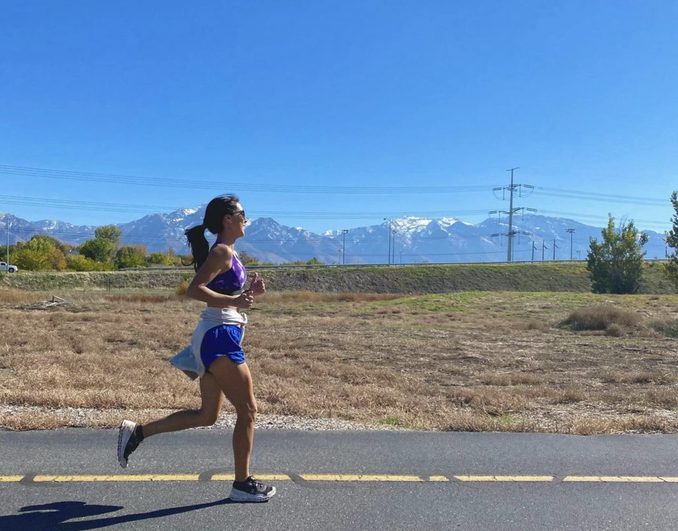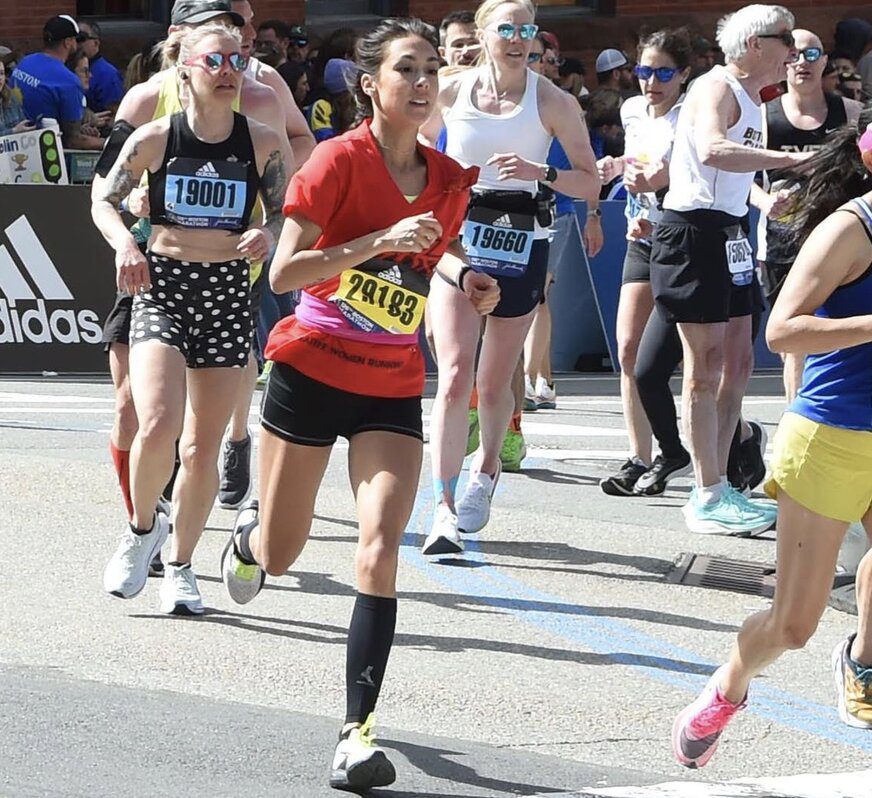Indigenous runner connects with her past, shares her love of running
Shayla Manitowabi-Huebner, who ran the Boston Marathon this year, strives to "teach Indigenous kids to be proud of who they are"
 Photo by:
Micaela Choo
Photo by:
Micaela Choo
Shayla Manitowabi-Huebner is Anishinaabe (Odawa) and a citizen of Wiikwemkoong Unceded Territory on Manitoulin Island (located in northern Ontario). She was a middle-distance track star in high school and college, but she didn’t grow up with a strong connection to her to her culture. Manitowabi-Huebener was adopted by her non-Indigenous grandparents as a baby and grew up aware of her ancestry but without a deep attachment to it. She didn’t find the passion for her culture until college, when she joined the online community Native Women Running (NWR). In a recent interview with Rambling Runner podcast host Matt Chittim, she shares her experience.
Shayla Manitowabi-Huebner is running as a member of the Native Women Running group. She said she found inspiration through that group and other Indigenous runners posting their stories online. https://t.co/joCcNw3MIw
— CBC Indigenous (@CBCIndigenous) April 18, 2022
Manitowabi-Huebner says that although the women in NWR weren’t from her particular tribe, they shared customs with her and helped her feel a connection to other Indigenous runners. After a visit to her First Nation community on Manitoulin Island with family, she began learning about her roots and bringing traditional practices into her daily life.
After joining NWR, Manitowabi-Huebner got an opportunity to run the Boston Marathon. The running group had a Boston entry that Indigenous women could apply for, and after being selected, Manitowabi-Huebner had a mere eight weeks to get ready for her first-ever marathon distance race.

Manitowabi-Huebner says learning her tribe’s customs helped her shift her motivation and attitude. Rather than viewing long runs as something to push through, she began to enjoy the process, and used prayer and gratitude to help her through challenging workouts. She carried her attitude into her race at Boston, where she says, “I ran 26.2 miles in prayer. I carried sacred medicine and prayed for healing—for all my relations. I placed cedar in my shoes and prepared asemaa (a tobacco tie) that I carried on my left shoulder.” Manitowabi-Huebner can boast a speedy 3:25:25 for the race, a Boston qualifying time itself.
“I will proudly wear my Boston marathon jacket, because of my own healing journey of what it means to be Indigenous,” Manitowabi-Huebner adds. “Embracing being Anishinaabe from Wiikwemkoong First Nation has allowed me to heal in ways I didn’t know could exist. I now look in the mirror and love my dark eyes and hair, knowing my ancestors embodied the same.”
After her own experience growing up disconnected from her community, Manitowabi-Huebner wanted to give back, and she began to shift her life aspirations. She says, “my goal is to eventually return to my community and work and live there for a bit,” and her future career goals include empowering the lives of Indigenous people through culturally-tailored practices such as running, traditional movement and ceremony.
Manitowabi-Huebner is based in Salt Lake City. She is currently working as program director for Running into Culture at Indigenous Health and Wellness Connections, where she was awarded the Running Strong For American Indian Youth Dreamstarter grant to start a culturally-tailored Native youth program.


